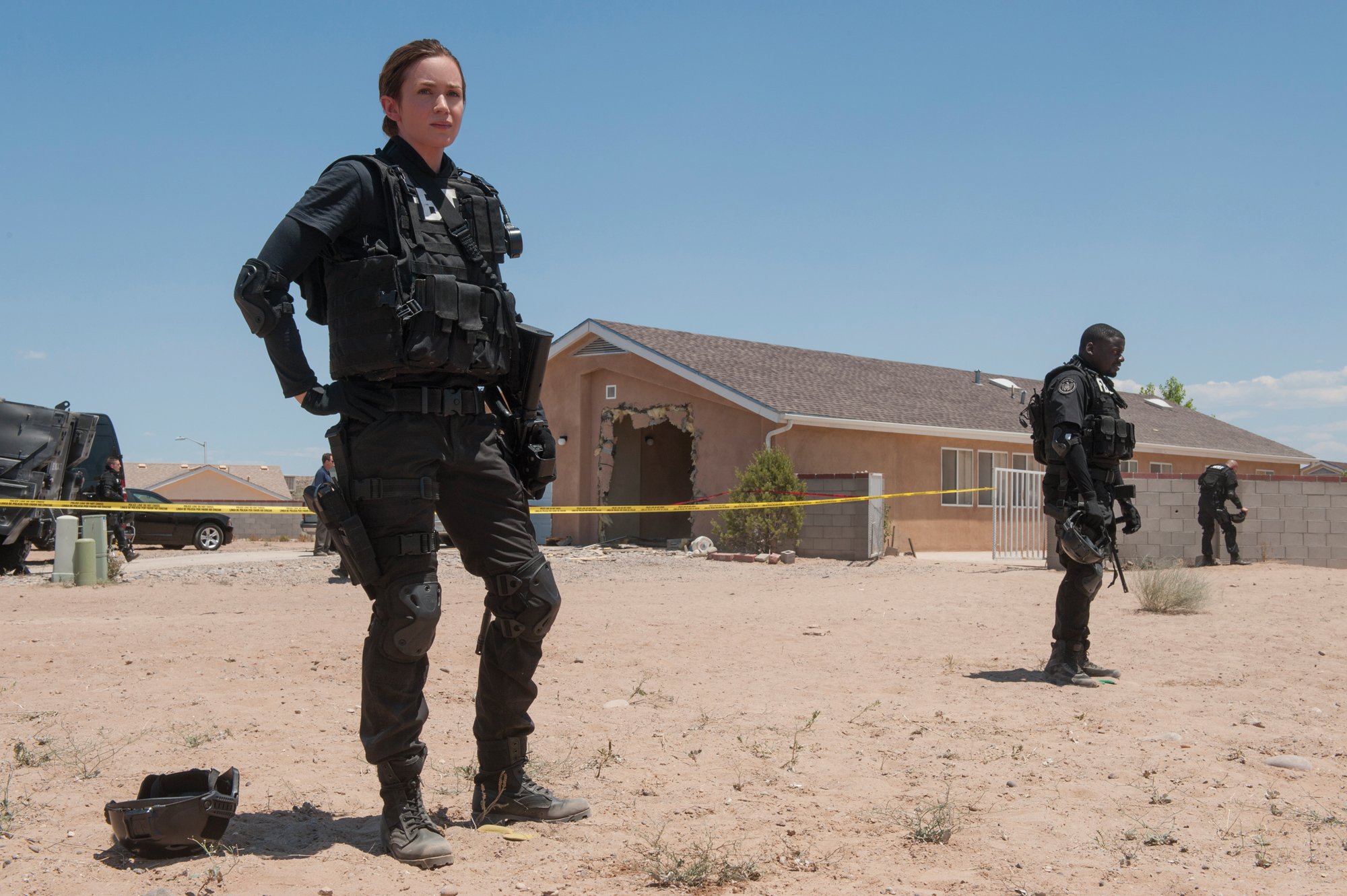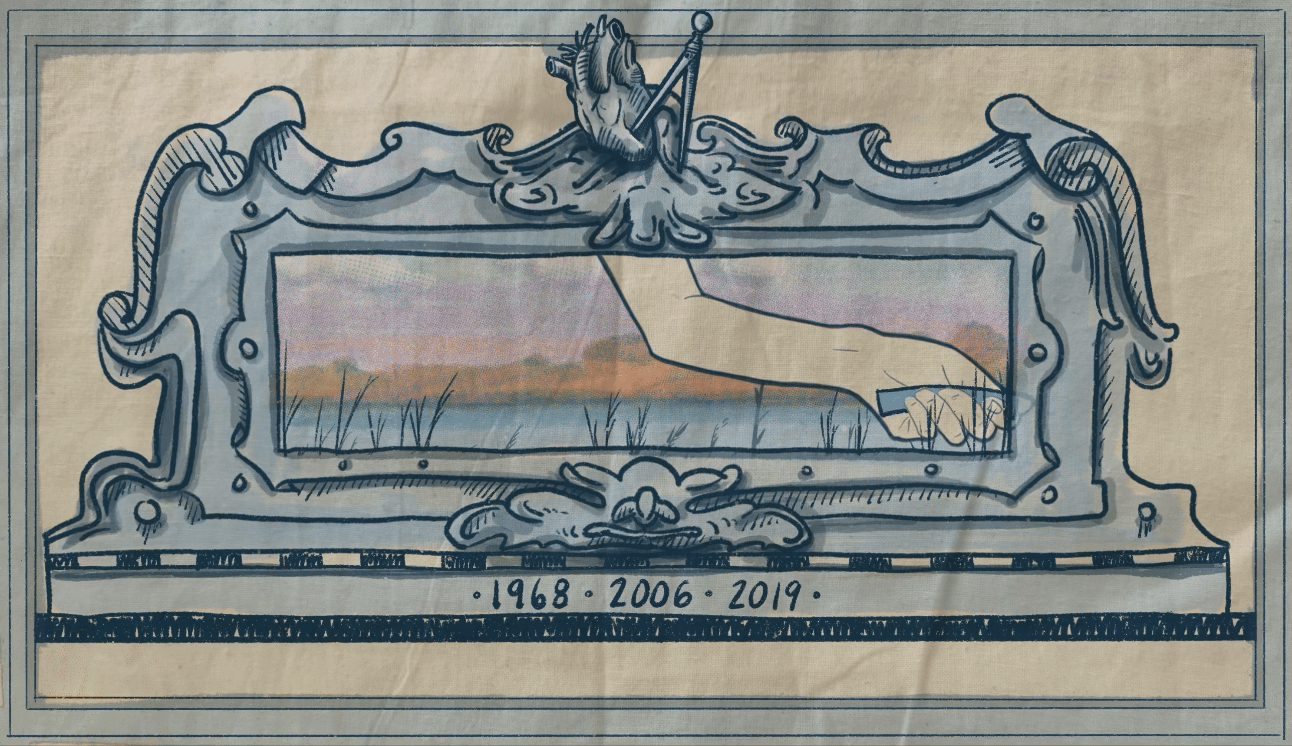
The Unwatchable ‘Sicario’
Denis Villeneuve’s nihilistic take on the drug war.
A version of this story ran in the January 2016 issue.
There’s a great moment near the end of Oliver Stone’s underrated masterpiece Nixon when Watergate burglar E. Howard Hunt (played by Ed Harris) tells White House lawyer John Dean that their boss is more sinister than Dean imagines. “John,” Hunt says, “sooner or later — sooner, I think — you’re gonna learn a lesson that’s been learned by everyone who’s ever gotten close to Richard Nixon: That he’s the darkness reaching out for the darkness.”
That quote came back to me at several points while watching Sicario, director Denis Villeneuve’s ultra-grim, ultra-violent look at the trans-border war on drugs, which is being released on DVD this month. As Villeneuve (working from a script by Texas native Taylor Sheridan) drags us from a drug-house-turned-mass-grave in suburban Arizona over the bullet-riddled Texas bridge that connects the United States and Mexico and finally into the secret cartel tunnels that are the pipeline and lifeblood of the two countries’ bloody business, he forces viewers to ask themselves: How much tragedy can one movie bear before the darkness starts reaching out for the darkness and swallows the entertainment whole?
It’s a fine line that filmmakers have been walk- ing with varying degrees of success since movies first appeared: Just how much true-to-life violence and moral destitution is too much? The debate was there with the nihilistic gangster movies of the Hays Code 1930s, the ultraviolent westerns of the late ’60s, the depravity of the American New Wave/Grindhouse street-gang films of the ’70s, the torture-and-terror political thrillers of the early aughts, and now in the color-saturated, morally convoluted border-war bloodbaths. With each generation, the scales shift. And Villeneuve, for one, seems emboldened by the idea of messing with the calibration of that balance, maybe as a means of waking us from some collective slumber about just how nasty our drug war has gotten. After reading Sheridan’s script, the French-Canadian director said he wanted to make a movie that was exciting but “deeply stressful,” which isn’t generally a phrase used to celebrate a piece of pop art.
Sicario actually goes beyond stressful into the realm of anxiety-inducing: It’s a gorgeous and thrilling but ultimately exhausting immersion in an amoral world, where decapitated bodies hang from city bridges, where torture is used as a tactic on both sides, and where the line between good guys and bad guys is blurred to the point of insignificance. To watch Sicario is to feel energized by its action but powerless in the face of its unrelenting nihilism.
It’s a powerlessness that extends from the viewers to the film’s heroine, Kate Macer (Emily Blunt), an idealistic but emotionally sealed-off FBI agent recruited by an interagency governmental task force out to capture a high-level Mexican drug lord and use him to get inside the cartel — into the very heart of the drug war’s darkness. It doesn’t take long, though, for Macer to realize she’s in over her head, a highly trained pawn in a dirty game where distinctions between the leaders of the two sides (the cops and the criminals) are merely matters of perception and prejudice and where, as one character says, only wolves survive.
Poor Macer may be talented and her heart may be in the right place, but she’s no wolf; in fact, she may be the most powerless hero in the history of the cinema, right up there with Holly Martins in The Third Man and Jake Gittes in Chinatown, the very picture of a dupe. She’s a stand-in for us, the embodiment of all the despair and impotence we feel watching the calamity that is American and Mexican drug policy unfold, both in real life and in the movie theater.
At the heart of all this darkness is a shadowy figure named Alejandro (played beautifully by Benicio Del Toro), who may or may not be the hitman, the sicario of the film’s title, who may be a Mexican lawyer or a CIA spook or a former member of a Colombian drug gang, a lawless assassin or an avenging angel. The only thing we and Macer know for sure is that Alejandro is a troubled soul who is as merciless with a gun as he is plagued by bad dreams, which is a disturbing combination and an apt metaphor.
If Macer is our stand-in, then Alejandro is the personification of all the amorality, dread and dead-eyed violence residing at the heart of the drug war. He may be terrifying, even inhuman, but he holds none of Macer’s delusions about himself or the job he has to do. That we still feel for Alejandro, even identify with him in his dark and quixotic quest for justice at any cost, only goes to show how grim and fatalistic the world of the Mexican and U.S. drug war has gotten, and how low our standards and our hopes have dropped.


